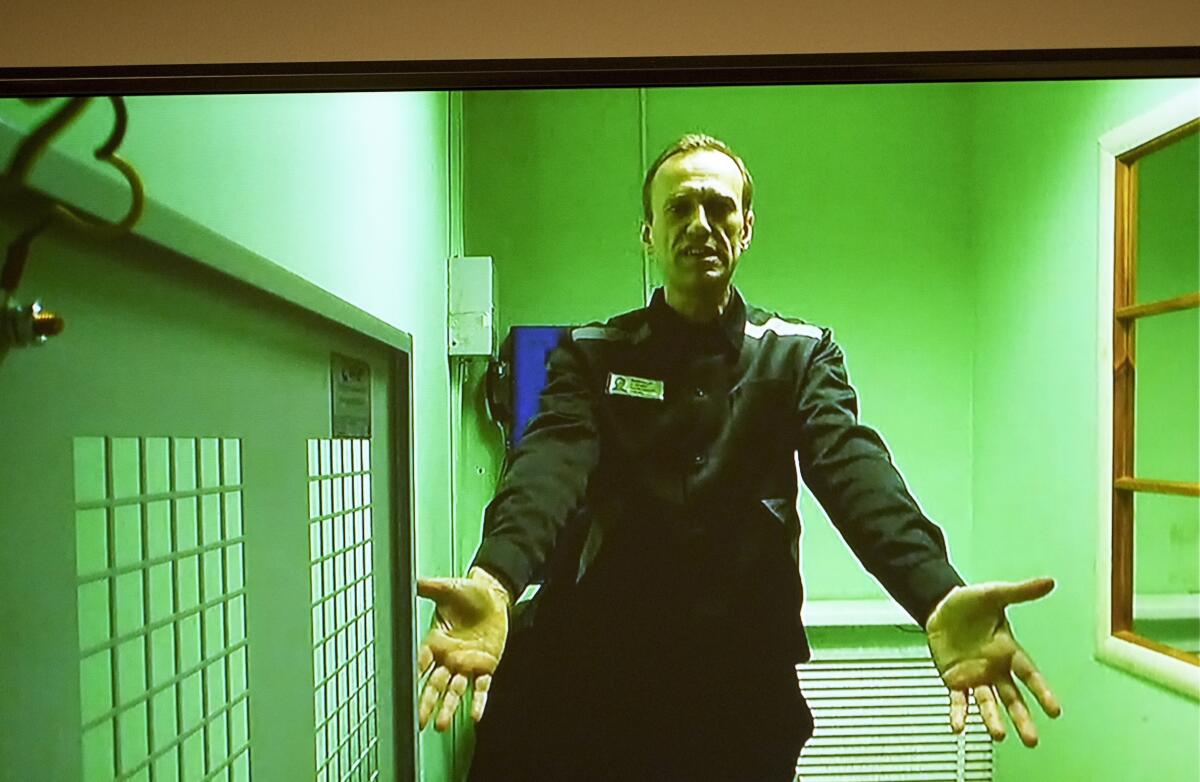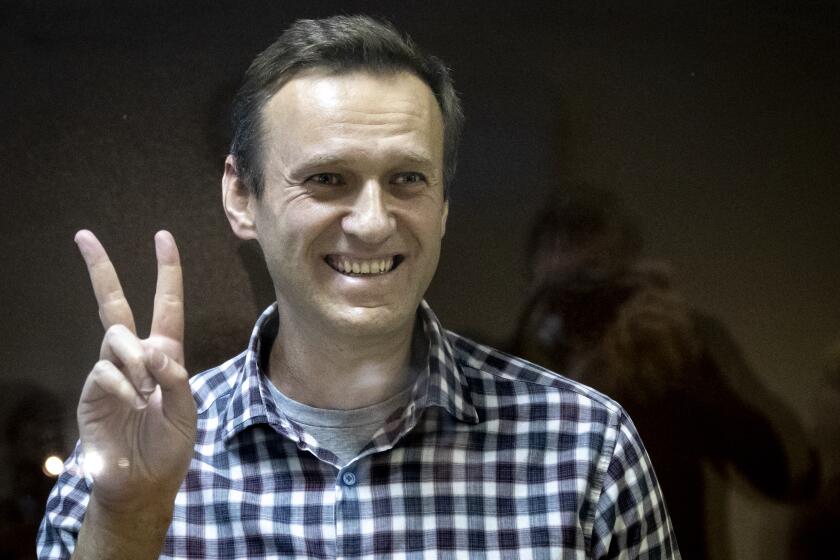Imprisoned Russian opposition leader Navalny to face new trial on extremism charges

- Share via
MOSCOW — A court in Moscow held a hearing Wednesday to set the stage for imprisoned Russian opposition leader Alexei Navalny to face a new trial on extremism charges in what he says is a Kremlin-ordered effort to extend his time behind bars.
Navalny, who exposed official corruption and organized massive anti-Kremlin protests, was arrested in January 2021 upon returning to Moscow after recuperating in Germany from a nerve-agent poisoning that he blamed on the Kremlin.
He initially received a 2½-year prison sentence for a parole violation. Last year, he was sentenced to a nine-year term for fraud and contempt of court. He is currently serving time at a maximum-security prison 150 miles east of Moscow.
The new extremism charges against Navalny relate to the activities of his anti-corruption foundation and statements by his top associates. His ally Leonid Volkov said the accusations retroactively criminalize all the activities of Navalny’s foundation since its creation in 2011 and carry a potential punishment of up to 35 years in prison.
The charges come as Russian authorities conduct an intensifying crackdown on dissent amid the war in Ukraine.
The hearing at Moscow’s Basmanny District Court was held to discuss preparations for Navalny’s trial on the extremism charges. Speaking via video link from prison, Navalny asked for more time to study the 196 case files.
Imprisoned Russian opposition leader Alexei Navalny learned from his lawyer that a film detailing his political activism won an Oscar.
The judge closed the session minutes after it opened, ruling that it should be held behind closed doors because the case involved sensitive information. It wasn’t clear when the trial might start.
“It’s an attempt to unlawfully restrict my ability to study the materials of the case and prevent anyone from knowing about it,” Navalny said before public access to the hearing ended.
He said an investigator had told him he also would face a separate military court trial on terrorism charges.
Navalny, who is Russian President Vladimir Putin’s most prominent foe, has rejected the charges as a political vendetta and an attempt by Russian authorities to keep him out of politics for as long as possible.
On the second anniversary of the poison attack on Alexei Navalny, Germany and the United States have hailed the determination of the Kremlin critic who is imprisoned in Russia.
His associates and supporters have become increasingly worried about his failing health. Earlier this month, they said Navalny had fallen ill with acute stomach pains and suspected that he was being slowly poisoned.
While imprisoned, Navalny has spent months in a tiny one-man cell, also called a “punishment cell,” for purported disciplinary violations such as an alleged failure to properly button his prison robe, properly introduce himself to a guard or to wash his face at a specified time.
His supporters have accused prison authorities of failing to provide him with proper medical assistance, using blindingly bright light in his cell and placing him next to a mentally unstable person.
Navalny said Tuesday that he had completed a 15-day stay in the punishment cell and was immediately ordered to spend another 15 days there.
More to Read
Sign up for Essential California
The most important California stories and recommendations in your inbox every morning.
You may occasionally receive promotional content from the Los Angeles Times.












